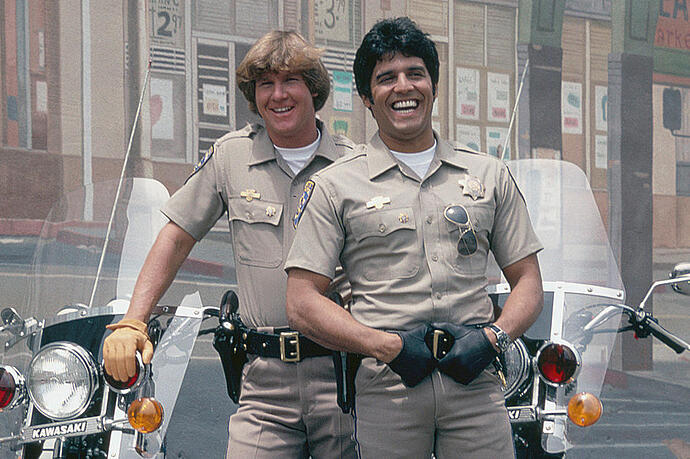The rest of the article is cops bitching about not feeling supported.
Jorge Grajeda retired from the Long Beach Police Department in September. He was born in Mexico and moved to Southern California with his family when he was 5. He was living the American dream in his early years as a cop, but as his responsibilities grew, he couldn’t help noticing the bite taxes took from his paychecks.
“I was paying some years $40,000 in income tax,” Grajeda said, and getting what felt to him like very little in return.
“I didn’t get subsidized housing, I didn’t get lower utility bills” that the government offered lower income people. “Nobody looked out for me,” Grajeda said.
And the sense of pride and accomplishment he felt in being a police officer eroded quickly, around the time of the national reckoning on police brutality that followed the 2014 shooting of Michael Brown, an unarmed Black teenager, by a white police officer in Ferguson, Mo.
Jorge Grajeda, with his wife, Marllin, and daughter, Samantha, 4, framed through the living room window of their rural home near Eagle, Idaho.
“We used to go places and people would wave to us,” or pay for our coffee, but in the last 10 years, “pretty much all of that went away,” Grajeda said. Now, he said, “it’s all about race.”
Today, Grajeda owns four houses in the Treasure Valley, as the area surrounding Eagle is known. He lives in one with his family and rents out the other three. He had never imagined owning so much real estate, but the prices and interest rates were so low in Idaho before the pandemic, when he started looking, he couldn’t pass up the investment opportunity, he said.
“I was feeling so burned down, frustrated, stressed” as a police officer in Long Beach, Grajeda said. When he visited Idaho, he was struck by how safe he felt. “That’s how it used to be when I was a little kid,” he added.
A retired sergeant from the Los Angeles County Sheriff’s Department, who asked that his name not be published because of credible threats from an ex-inmate he helped arrest, arrived in 2019 with his $128,000 pension and guaranteed health coverage.
Does he feel any remorse for leaving California, the source of his retirement income?
“You get over that real quick,” he said, laughing at the question. “You put 30 years of blood, sweat and tears into the city. You don’t feel guilty at all.”
He lived in Southern California his whole life and used to love it, he said. But he, too, had grown to view the state as a toxic stew of crime, homelessness and liberal policies that made police work seem thankless.
Like many cops, he said his disillusionment with California’s government stems from the sense that police department leaders and politicians no longer have their backs.
Cops not only have to worry about the most violent and unstable members of society they’re asked to confront on the street, he said, they also have to worry about prosecutors trying to score points with liberal voters by “hanging them out to dry” when things go wrong.
It takes a toll. “I’ve stood on the front lines at protests with people spitting in your face, throwing bottles and rocks, and you couldn’t do anything,” he said. “That was just silly to me.”
If people in California are upset that so much pension money is fleeing the state, it’s their fault for electing politicians who don’t support the police, he said, adding, “If those guys weren’t in office, I tell you right now, 70 to 80% of us would still be in California.”
